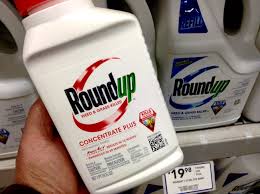Understanding the Roundup Lawsuit: Key Facts and Implications
by Arjun Dev

Roundup Lawsuit, a popular herbicide developed by Monsanto, has been at the center of a legal storm over allegations that its active ingredient, glyphosate, causes cancer. Thousands of individuals who used Roundup and developed cancer have filed lawsuits against Monsanto, claiming that the company failed to adequately warn them of the risks associated with the product. This article delves into the details of the Roundup lawsuits, the science behind glyphosate, and the broader implications for agriculture, public health, and environmental protection.
Table of Contents
ToggleBackground of the Roundup Lawsuit
The Roundup lawsuits originated from claims that glyphosate, the key ingredient in Roundup, is carcinogenic and can cause cancer, specifically non-Hodgkin’s lymphoma. Plaintiffs allege that Monsanto, the manufacturer of Roundup, knew about the risks associated with glyphosate but failed to adequately warn consumers and regulators.
Allegations and Claims in the Lawsuit
- Cancer Risk: Plaintiffs in the Roundup lawsuit claim that exposure to glyphosate through the use of Roundup led to their development of cancer, specifically non-Hodgkin’s lymphoma.
- Failure to Warn: Plaintiffs allege that Monsanto failed to adequately warn consumers and regulators about the risks associated with glyphosate, including its potential carcinogenic effects.
- Class Action Status: The Roundup lawsuit seeks class action status, allowing other individuals who have developed cancer after using Roundup to join the lawsuit and seek damages.
Monsanto’s Response and Legal Defense
Monsanto, now owned by Bayer AG, has denied the allegations and maintains that glyphosate is safe when used as directed. The company points to numerous studies and regulatory assessments that have found glyphosate to be safe and non-carcinogenic.
Scientific Evidence and Controversy Surrounding Glyphosate
The scientific community is divided on the issue of glyphosate’s safety. While some studies have suggested a link between glyphosate exposure and cancer, others have found no such association. Regulatory agencies, including the U.S. Environmental Protection Agency (EPA) and the European Food Safety Authority (EFSA), have generally concluded that glyphosate is unlikely to pose a carcinogenic risk to humans when used as directed.
Conclusion
The Roundup lawsuits is a complex legal battle that raises important questions about the safety of glyphosate and the responsibilities of manufacturers to warn consumers about potential risks. As the legal proceedings continue, they will likely have far-reaching implications for the agricultural industry, public health, and environmental protection.
FAQs
Q: What is the Roundup lawsuit about?
A: The Roundup lawsuit is about allegations that the herbicide Roundup, developed by Monsanto, causes cancer due to its active ingredient, glyphosate.
Q: What are the allegations in the Roundup lawsuit?
A: The allegations in the Roundup lawsuits include claims that Monsanto failed to adequately warn consumers and regulators about the cancer risks associated with glyphosate.
Q: What is Monsanto’s response to the Roundup lawsuit?
A: Monsanto, now owned by Bayer AG, has denied the allegations and maintains that glyphosate is safe when used as directed.
Also Read:
https://jetbiography.com/estimation-techniques-for-different-types-of-construction-projects/
Share this post:
Roundup Lawsuit, a popular herbicide developed by Monsanto, has been at the center of a legal storm over allegations that its active ingredient, glyphosate, causes cancer. Thousands of individuals who used Roundup and developed cancer have filed lawsuits against Monsanto, claiming that the company failed to adequately warn them of the risks associated with the…
Recent Posts
- The Web Edge Guiding System: A Comprehensive Guide to Advanced Alignment Technology
- A Deep Dive into Blue Top HGH Reviews: What You Need to Know
- The Wuthering Wave Online: Navigating the Virtual Realm of Dynamic Interaction
- Double Aspheric Lenses: The Pinnacle of Modern Optical Design
- How to Download TikTok Videos in Seconds: A Step-by-Step Guide